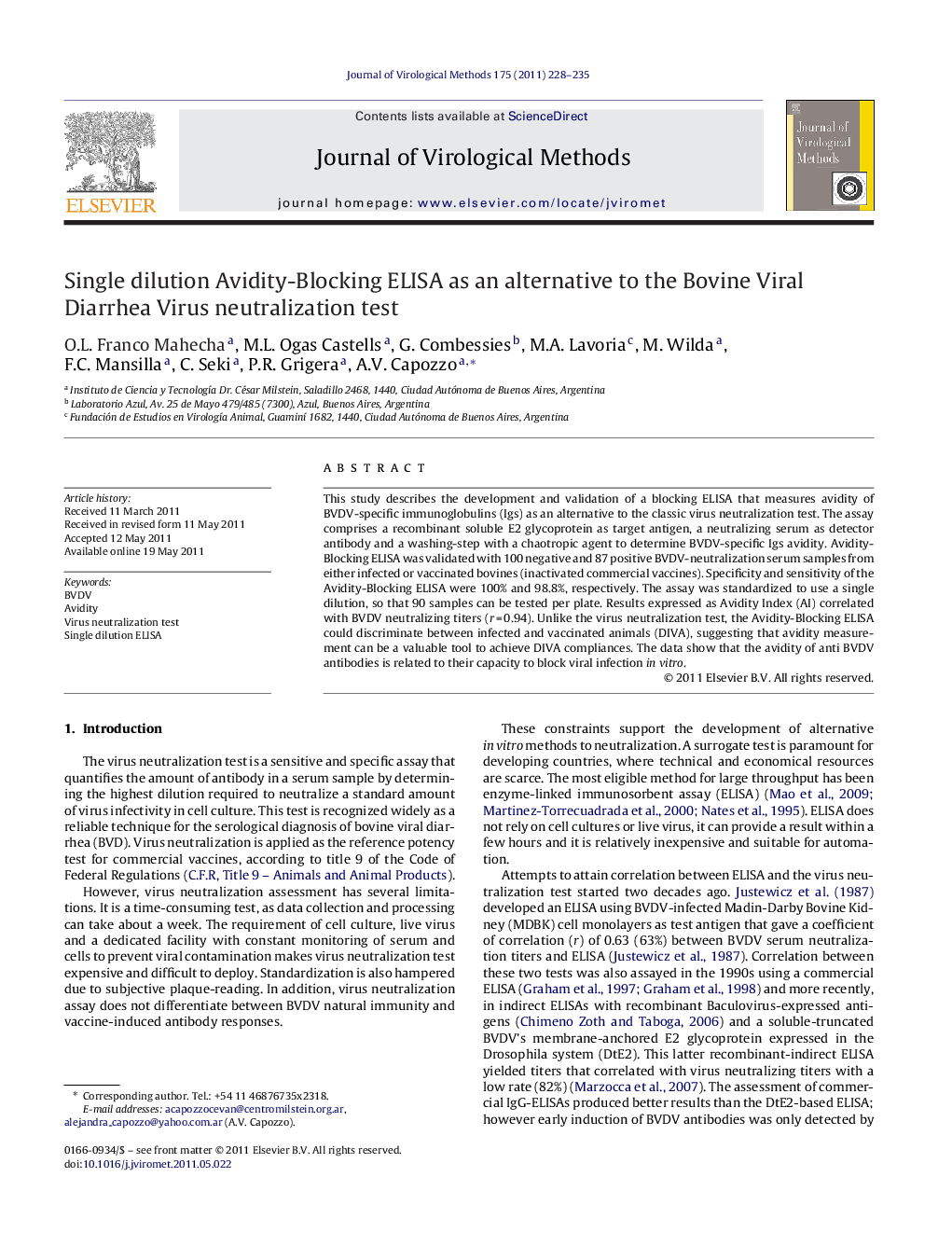| Article ID | Journal | Published Year | Pages | File Type |
|---|---|---|---|---|
| 3406851 | Journal of Virological Methods | 2011 | 8 Pages |
This study describes the development and validation of a blocking ELISA that measures avidity of BVDV-specific immunoglobulins (Igs) as an alternative to the classic virus neutralization test. The assay comprises a recombinant soluble E2 glycoprotein as target antigen, a neutralizing serum as detector antibody and a washing-step with a chaotropic agent to determine BVDV-specific Igs avidity. Avidity-Blocking ELISA was validated with 100 negative and 87 positive BVDV-neutralization serum samples from either infected or vaccinated bovines (inactivated commercial vaccines). Specificity and sensitivity of the Avidity-Blocking ELISA were 100% and 98.8%, respectively. The assay was standardized to use a single dilution, so that 90 samples can be tested per plate. Results expressed as Avidity Index (AI) correlated with BVDV neutralizing titers (r = 0.94). Unlike the virus neutralization test, the Avidity-Blocking ELISA could discriminate between infected and vaccinated animals (DIVA), suggesting that avidity measurement can be a valuable tool to achieve DIVA compliances. The data show that the avidity of anti BVDV antibodies is related to their capacity to block viral infection in vitro.
► This study describes the development and validation of a single dilution blocking ELISA that measures avidity of BVDV-specific immunoglobulins (Igs) as an alternative to the virus neutralization test. ► Specificity and sensitivity of the Avidity-Blocking ELISA were 100% and 98.8%, respectively. ► Results expressed as Avidity Index (AI) correlated with BVDV neutralizing titers (r = 0.94). ► The Avidity-Blocking ELISA could discriminate between infected and vaccinated animals. ► The avidity of anti BVDV antibodies is related to their capacity to block viral infection in vitro.
